







Read More
Master of Science (M.Sc.) in Chemistry is a two-year-long postgraduate degree programme in the field of science and it is divided into four semesters. M.Sc. in Chemistry provides an understanding of the variety of physical and biological phenomena with the knowledge of natural and chemical processes. The chemistry course at the postgraduate degree programme is specially designed for students willing to pursue a career in industry, academia, and research. The course provides in-depth knowledge in the fields of Inorganic Chemistry, Organic Chemistry, Medicinal Chemistry, Physical Chemistry, and Analytical Chemistry. Through research-driven approach the candidates will get practical knowledge to solve complex problems in various fields, such as pharmaceuticals, petrochemicals and other research-based industries. It will give a wide range of scope and career opportunities for students in science-related fields both in private as well as government companies. To get admission in to Assam down town University in M.Sc. Chemistry course, applicants must fulfill the criteria of having 45 % of marks in B.Sc. Degree.
Year wise Course Details
Courses for this semester
This paper is intended for students to impart knowledge on chemical bonding theories, bonding and structure of different borane compounds. The students will gain knowledge on the different structural arrangements related to ionic solids, metallic bonding. The acid base concepts, oxidation reduction reactions are also being discussed elaborately.
Organic Chemistry involves the study of stereochemistry of organic compounds which helps to understand the temporal aspect of molecular geometry and its significance in physicochemical properties and reaction mechanisms. The thorough study of the reaction mechanisms of organic reactions and the reactive intermediates is of fundamental importance in order to build a strong base for further study of organic chemistry and designing and synthesis of novel organic compounds.
This course is designed for describing the behavior of microscopic (e.g. atomic scale) systems. In early centuries some of the developed theory has been essential for understanding many of the scientific advances and has enabled a comprehensible picture of atomic-scale phenomena. A qualitative understanding of quantum is necessary for a chemist, and an understanding of the fundamentals of quantum mechanics is valuable for any chemistry involved with research. In this course we will study the fundamentals of quantum mechanics and how they apply to chemical systems.
Participation in extracurricular activities enhances leadership, teamwork, and communication skills, fosters creativity and critical thinking, and promotes personal growth. Students develop resilience, adaptability, and social responsibility, gaining competencies that complement academic learning and prepare them for real-world challenges.
Courses for this semester
This paper is intended for students to impart knowledge on different bonding theories of transition metal complexes, their magnetic properties and the different reaction mechanisms associated with these type of complexes. Learners will also understand about the different radio isotopes and their applications along with the different radioactive processes.
This course of organic chemistry includes understanding of oxidation and reduction reactions of organic compounds. It also focuses on organic photochemistry and pericyclic reactions. A thorough understanding of the different reagents used in organic chemistry and the named reactions are also being included in this course to enable the students to have a sound knowledge as well as prepare them for national and state level competitive exams such as NET/SLET, GATE, etc.
This course is designed to help students to understand the different surface phenomena and its fundamental background. The course deals with chemical and physical phenomena that are important within heterogeneous catalysis. Further the course discusses the rate of enzyme catalyzed reactions - effect of substrate concentration, pH and temperature on enzyme catalyzed reactions - inhibition of enzyme catalyzed reactions. It also includes the Boltdsmann distribution and the role of the partition function. Moreover, the course defines the Fermi-Dirac and Bose-Einstein distributions determine the free energy and macroscopic quantities from partition function; applications to simple systems like ideal gas, etc. Find out the residual entropy of the system using third law of thermodynamics.
Courses for this semester
This course provides an overview of the different types of biomolecules present in human beings and about their chemistry.
This course will help the students to understand the basic concept of matrices and group theory. The different symmetry elements, symmetry operations necessary to distinguish the molecules are also taught extensively in this course.
This course is intended to help students to gain independent laboratory skills in certain separation techniques and they will have the ability to interpret data from analytical separation methods. The course aims to provide in-depth theoretical and practical insights into commonly occurring modern electroanalytic techniques. The course also aims to develop the students’ ability to independently select and optimise appropriate electroanalytical methods and to provide a coherent overview of the subject. Course dealing with use of optical methods based on how the sample acts toward electromagnetic radiation. Further, the course deals with discussion about the various thermal methods as well as laws of photochemistry to explain the excitation of electrons in the system.
This course deals with the content of ecology and Environment, toxicity and hazards, environmental pollution, and application of green principles. In the course students will be introduced to vocabulary used to describe specific toxic effects, as well as resources available to characterize the hazardous properties of chemicals. The course covers processes responsible for the occurrence and release of pollutants in the environment, dispersion mechanisms, the hazards associated with different types of pollutant, problems of accumulation of toxic substances, and procedures for the reduction of emissions and remediation of contaminated environments. Further, the unit Green chemistry is designed as to reduce or eliminate the use or generation of hazardous substances produced during the chemical processes. Green chemistry applies across the life cycle of a chemical product, including its design, manufacture, use, and ultimate disposal.
Courses for this semester
This course deals with the concept and develops ideas on the synthetic routes for the formation of organic molecules. A strong background on dynamic stereochemistry is highly essential for efficient designing of methods for formation of complex organic compounds which is included within this course. This course also highlights about heterocyclic compounds which are prominent moieties present in naturally available bioactive compounds.
This course provides an introduction to the broad field of natural products chemistry by reviewing the major classes of natural products compounds, delivers knowledge on the identification and chemistry of natural products. The course also deals with their biosynthesis and helps the students to acquire skills to extract, isolate and purify simple products that are derived from plants.
This paper is intended for students to impart knowledge on structure, bonding and reactions associated with metal alkyl, arene complexes of organometallic complexes. The students will gain knowledge on the different metal cluster complexes.
This course will help the students to understand the meaning of labile and inert complexes, the factors on which the complexes can be distinguished. Different inorganic reaction mechanisms like ligand replacement reaction, substitution reaction of square planar and octahedral complexes are also being incorporated.

CST- Common scholarship test is a national and international level online MCQ based examination funded for intellectual empowerment by Assam down town University.
CST- Maximum enrolment each year is 120 seats and any 10+2 students can apply. Adtu is northeast India’s first placement driven university to provide 100% scholarship benefits worth 10 cr.
CST aims to inspire brilliant and competent students to pursue further education. Accredited with a prestigious grade by NAAC, UGC and AICTE.
Explore more scholarships that can help you reach out your goal with financial aid.
This scholarship is valid on the basis of the board/university examination
| 95% & above | 100% Scholarship on all semester |
| 90%-94.9% | 50% Scholarship on all semester |
| 80%-89.9% | 25% Scholarship on all semester |
This scholarship is valid on the basis of the board/university exam
| National & International Level | 100% Scholarship on all semester |
| State Level | 50% Scholarship on all semester |
| District Level | 25% Scholarship on all semester |
This scholarship is valid on the basis of the board/university exam
| National & International Level | 100% Scholarship on all semester |
| State Level | 50% Scholarship on all semester |
| District Level & NCC Certificate Holder | 25% Scholarship on all semester |
Discover a multitude of world-class amenities and cutting-edge resources at Assam down town University, enhancing your academic journey to new heights.
The Start-Up & Incubation Centre at Assam down town University provides a supportive environment for young entrepreneurs to develop and grow their business ideas. The center provides mentorship, funding, and networking opportunities to help innovative ideas become successful businesses.
SFURTI scheme to support rural entrepreneurs and innovators, an initiative by the Ministry of MSME
TIDE 2.0 scheme for ICT-based startups which provides a grant of Rs. 4L and Rs. 7L under EiR and Grant categories respectively, an initiative by the Ministry of MeitY.
dtVL Ideation, an incubation program for early-stage entrepreneurs with a market-ready solution/product, offering interest-free loans up to Rs. 2 lakhs.
Sprout UP, an incubation program for students, faculties, and researchers with innovative business ideas, prototypes, or technology solutions.













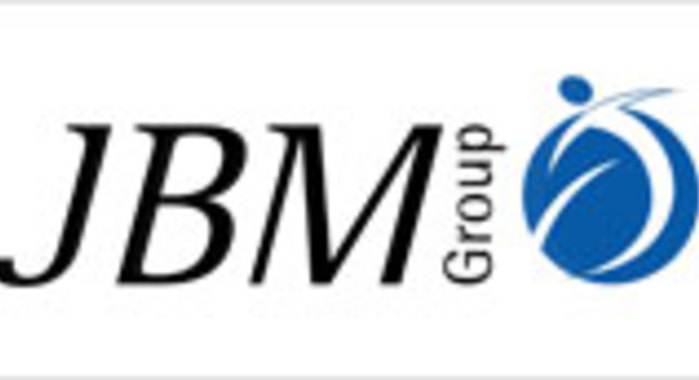





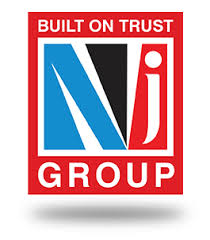





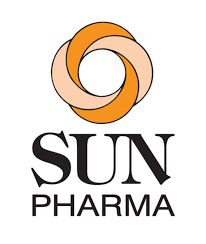


![24[7].ai 24[7].ai](https://adtu.in/files/247ai.jpg)
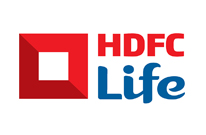
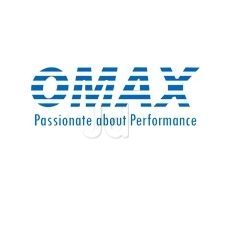
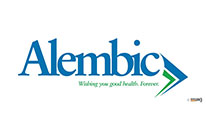


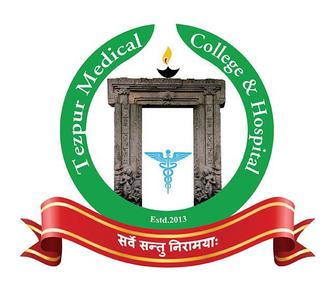









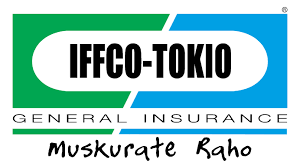





"I am a BBA student of 3rd semester. I hail from Bhutan. I vow that I am having a great experience i...
"AdtU is amazing. I am a BBA student of 2019-22 batch and I am just grateful for the amount of oppor...
Let us be grateful to the people and place who makes us happy. They are the charming gardeners whom ...
Currently I am pursuing MBA in Assam Down Town University. MBA is the professional course through wh...
AdtU is a university that focuses on giving knowledge, education and simultaneously making the stude...
The Assam downtown University has been a great learning experience. The university has provided me w...
My experience with AdtU has been splendid one indeed. Little needs to said about its scenic infrastr...
As a student I am very glad that I have got an opportunity to study here in Assam downtown universi...
My name is Sakhyajit Roy. I?m from Tripura. I joined the university on Auguest, 2017 as a student of...
I share immense pleasure to share my post graduate program experience in Assam down town University....
AdtU is a platform where I got golden opportunities to feed my zeal for knowledge through the dynami...
I am fortunate to get an opportunity to study here in Assam Downtown University. The best thing abou...
Our university is one of the best place for developing ourselves in the field of research and acedem...
ADTU is a university that is very good interms of infrastructure, academics and placements. Our tea...
It is one of best private colleges in North East India, it also provides a good environment for ed...
ADTU is a good University which provides the students with best quality lectures and ensures comfort...
The environment of Assam downtown university is very pleasant.The department of BMLT is very good a...
The university has all the necessary facilities and amenities for students . The classrooms and the ...
Assam downtown University is well recognised all over india. In the ongoing pandemic situation it ha...








